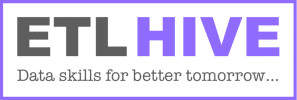Mastering SQL Fundamentals: A Comprehensive Course
Unlock the Power of Structured Query Language (SQL) with ETLHIVE's Expert Instruction



SQL Course in Pune
Etlhive offers Data Science Course in Pune, includes detail Data science, Data analytics courses for IT & NON IT background students We have wide range of tools frequently used for Data Analytics. As a part of this Data science training in Pune, we teach Data Science, Machine Learning, Deep Learning and Artificial Intelligence will be taught to you in a detailed manner. Primary goal is for students to develop ability to crack interviews for Data Science positions.
Course highlights:
SQL, or structured query language, is a language used to run databases that is useful for creating, deleting, retrieving, and altering rows among many other things. The common language used by relational database systems is SQL. SQL is the standard database language used by all Relational Database Management Systems (RDMS), including MySQL, MS Access, Oracle, Sybase, Informix, and others. There are numerous benefits associated with SQL, including the ability to add and remove databases and tables, modify permissions on tables, procedures, and views, among many other things. Learn all about the terminology and principles with this SQL lesson. You can also use the interview questions and answers to get ready for a SQL interview. Now begin the SQL tutorial
What is SQL?
SQL stands for Structured Query Language and is a computer language that we use to interact with a relational database. SQL is a tool for organizing, managing, and retrieving archived data from a computer database. The original name was given by IBM as Structured English Query Language, abbreviated by the acronym SEQUEL. When data needs to be retrieved from a database, SQL is used to make the request. The DBMS processes the SQL query retrieves the requested data and returns it to us. Rather, SQL statements describe how a collection of data should be organized or what data should be extracted or added to the database.
Why Learn SQL?
SQL is a powerful language used by businesses worldwide to efficiently query and manipulate data within databases. If you want to land a role in technology focusing on data, especially if you plan to work with relational databases, then there are several benefits to learning SQL programming to manage SQL databases. Database Access & Manipulation: Creating, reading, updating, and deleting data (CRUD) are core database skills for any data professional. SQL makes each of these operations fast and efficient. Data Analysis: Creating and running simple and complex queries can help you discover valuable insights or trends. For example, customer preferences or purchasing habits can be analyzed to help you tailor your marketing strategies. Transferable Skills: Understanding SQL can be a valuable stepping stone to learning how to work with and manipulate NoSQL databases, which have grown in popularity. Career Opportunities: Taking an SQL Bootcamp online or attending SQL programming courses can equip you with technical knowledge about database design and query optimization via SQL. These skills can open up a range of new roles in data science, analytics, software engineering, web development, and more.
Syllabus
- Data Transformation
- Shape and Transform the Data
- Overview of Power
- Query ( Power Query Editor)
- Ribbons( Home, Transform,, Add, Column)
- The Queries Pane And the Formula Bar
- Saving Works
- Data Types
- Filtering the Column
- Filtering Text Filter
- Filtering Number Filter
- Removing Column,
- Renaming Column
- Adding the Column,
- Merge Column, PIVOT
- Transpose, Removing Rows
- Removing Duplicates,
- Removing Blank Rows
- DAX, Calculated Column, Measures
- DAX Table and Column
- Creating Calculated
- Column & Creating Measure
- Column Vs Measures
- Arithmetic Operators
- Date Functions( Year, Day, Time, Date, DateDiff, Now)
- Logical Function(IFELSE,OR,AND,IN)
- Grouping The Values
Sorting the Visuals - Visualizing Data
- Create Chart bar and column Chart
- Creating Stack Chart,Horizontal Chart
clustering chart formatting cluster charts
Pie Chart, Formatting Donut Chart
Line Chart, Area Chart
Combo Chart - LIVE Page Dashboard
- Advantage Dashboard
- Formatting Dashboard
- Interacting Dashboard
- Sharing Dashboard
Programming Languages & Tools

Certificates
Obtaining Your Certification
Upon successful completion of any course at Etlhive, participants receive a certificate attesting to their proficiency in the respective subject matter. These certificates serve as tangible evidence of the skills acquired during the training, enhancing the credibility of individuals in the job market and validating their expertise to potential employers. Etlhive certificates are recognized for their industry relevance and are highly regarded by leading organizations, providing a competitive edge to certificate holders. The validation process ensures that the certifications are earned through rigorous learning and assessment methods, reflecting real-world application and mastery of the concepts taught. With Etlhive certificates, individuals can showcase their commitment to continuous learning and professional development, opening doors to new career opportunities and advancement prospects.
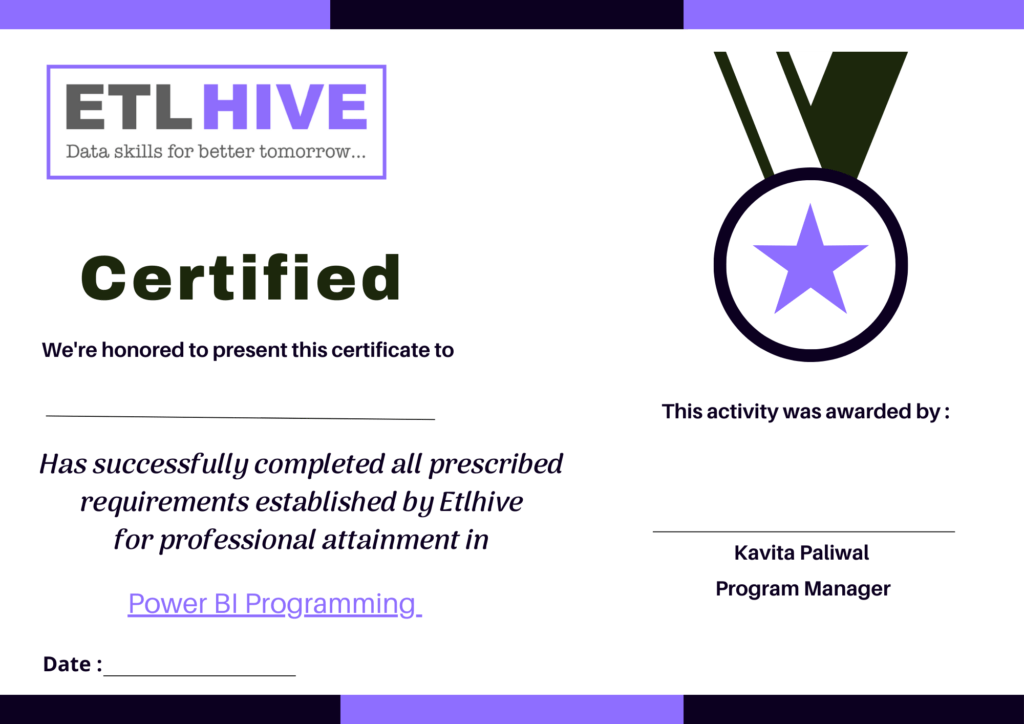
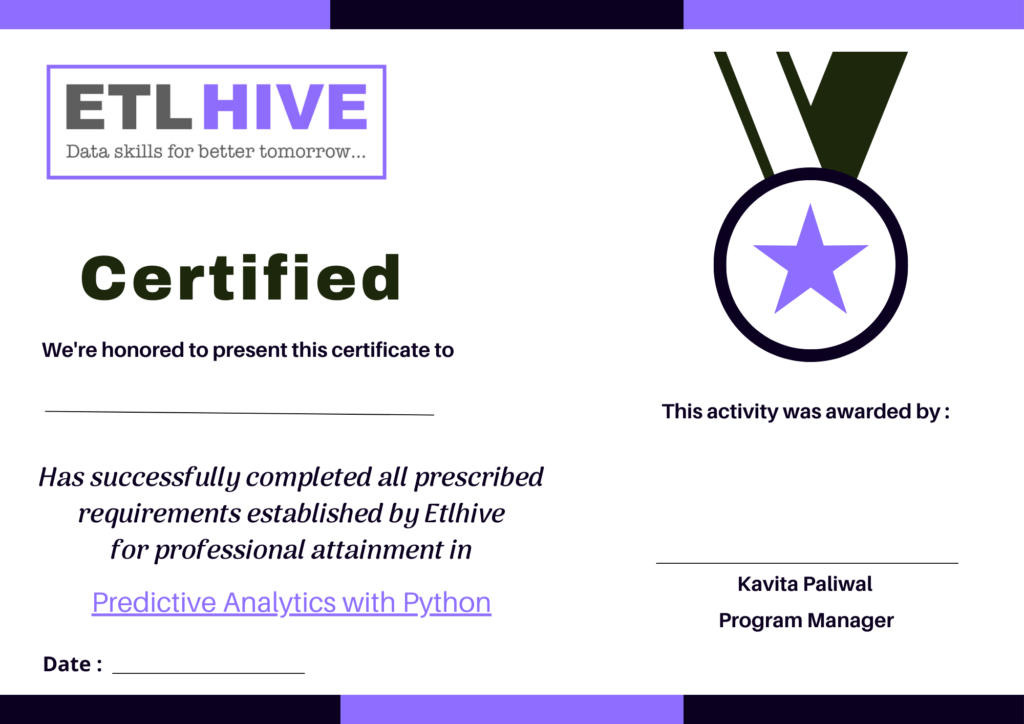
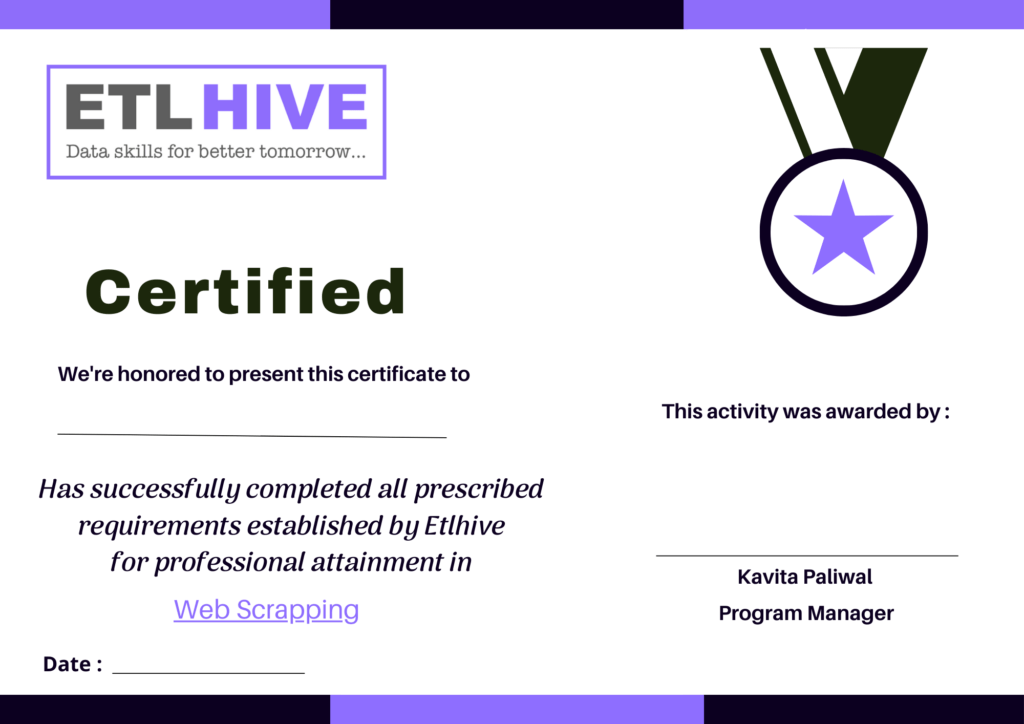
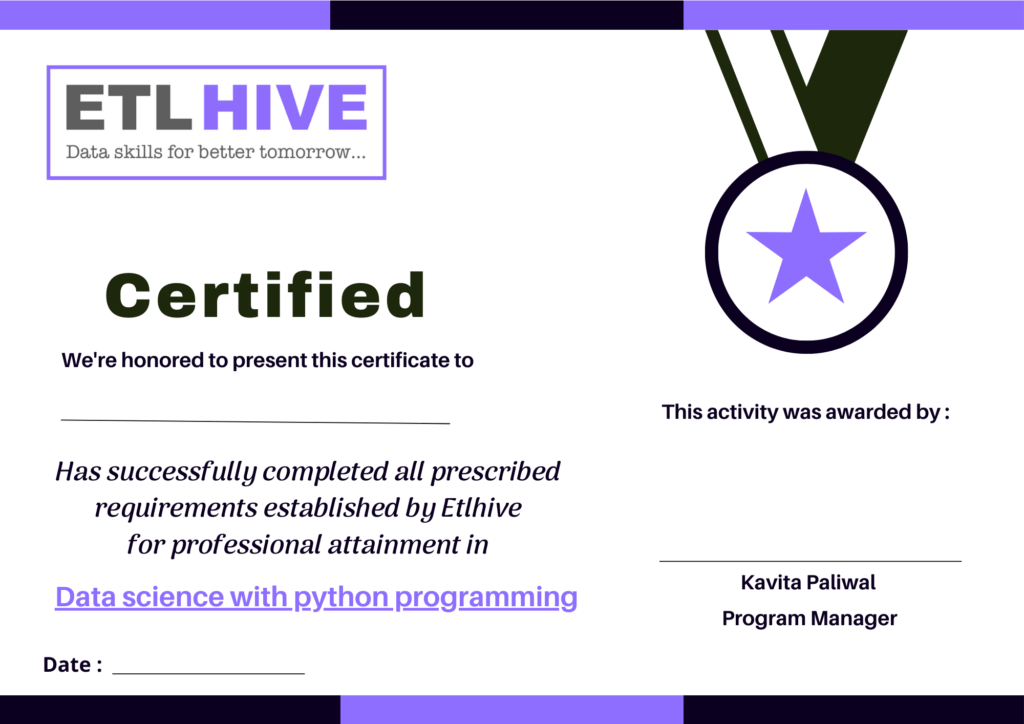
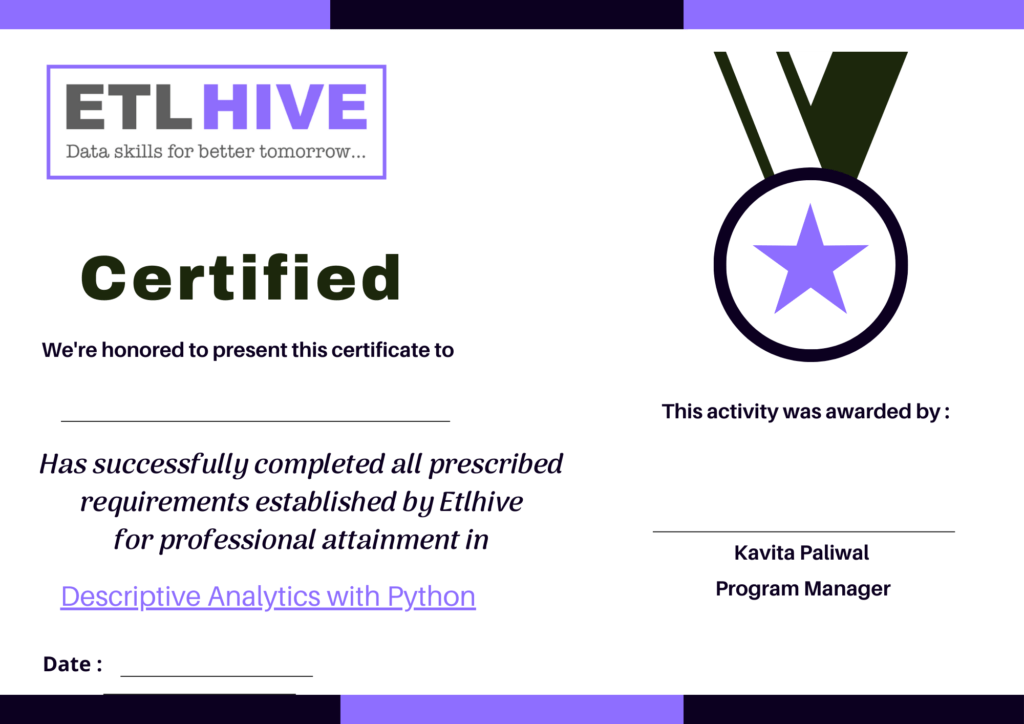
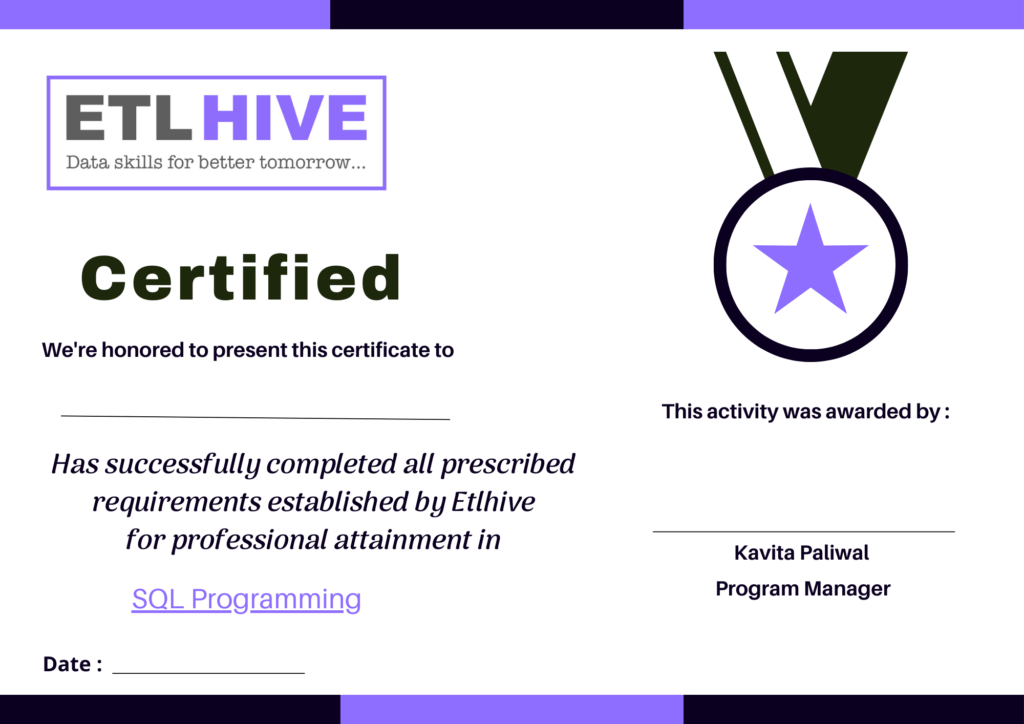
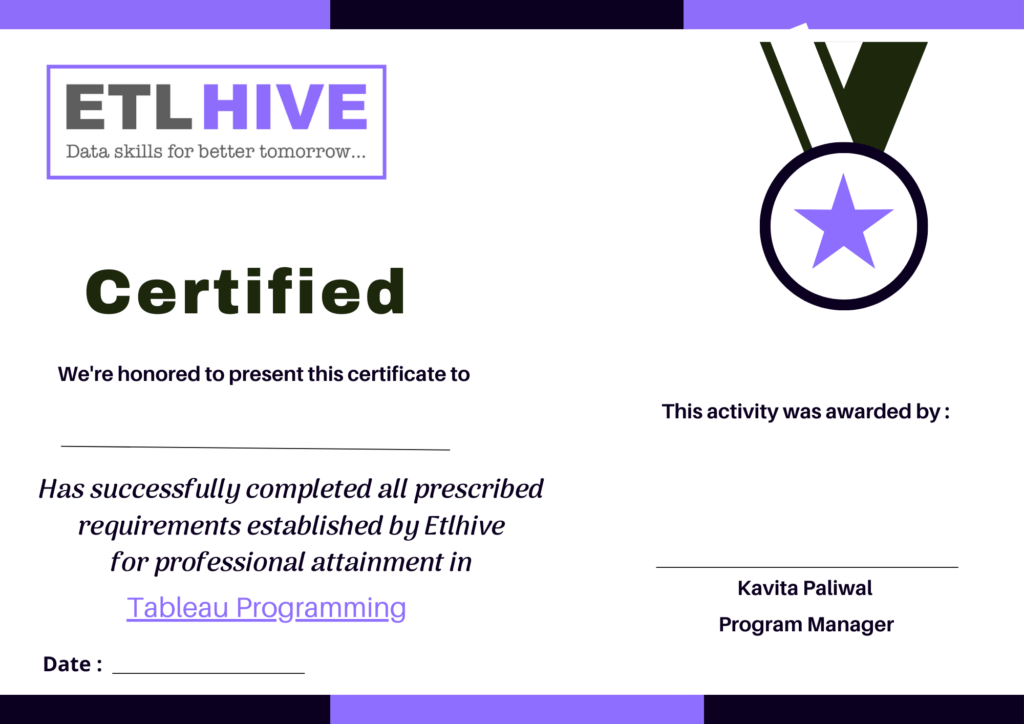
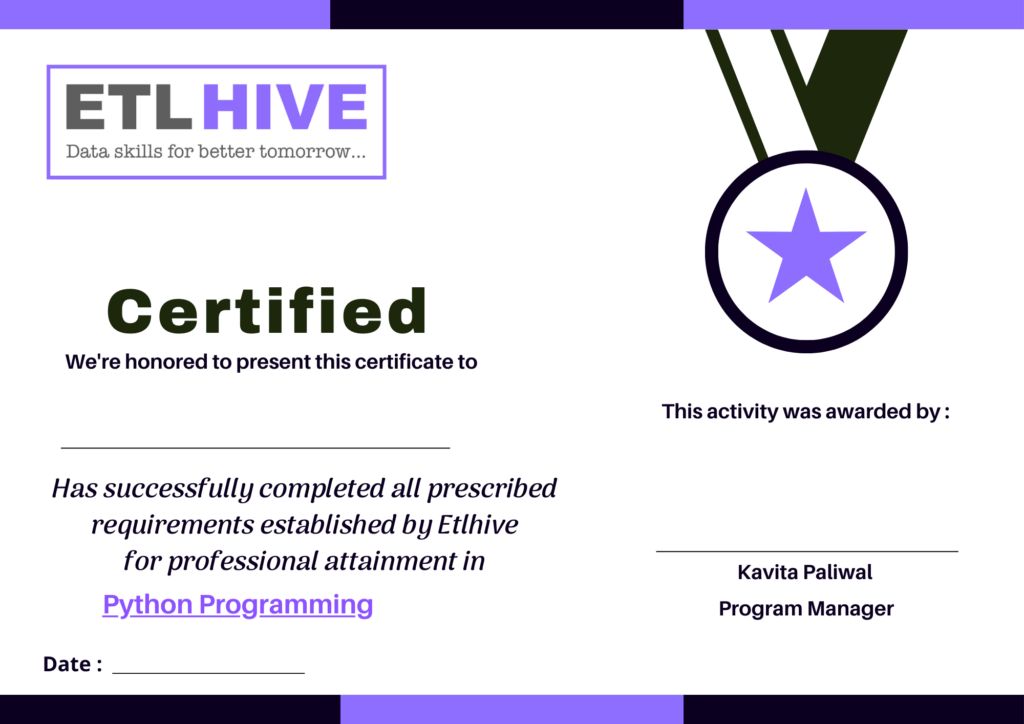
Training students for leading brands








Frequently asked questions
Frequently asked questions

- create, delete, and update tables in a database
- access, manipulate, and modify data in a table
- retrieve and summarize the necessary information from a table or several tables
- add or remove certain rows or columns from a table
All in all, SQL allows querying a database in multiple ways. In addition, SQL easily integrates with other programming languages, such as Python or R, so we can use their combined power.
- Data Definition Language (DDL) – to define and modify the structure of a database.
- Data Manipulation Language (DML) – to access, manipulate, and modify data in a database.
- Data Control Language (DCL) – to control user access to the data in the database and give or revoke privileges to a specific user or a group of users.
- Transaction Control Language (TCL) – to control transactions in a database.
- Data Query Language (DQL) – to perform queries on the data in a database to retrieve the necessary information from it.
- DDL:
CREATE,ALTERTABLE,DROP,TRUNCATE, andADD COLUMN - DML:
UPDATE,DELETE, andINSERT - DCL:
GRANTandREVOKE - TCL:
COMMIT,SET TRANSACTION,ROLLBACK, andSAVEPOINT - DQL: –
SELECT
A query is a piece of code written in SQL to access the data from a database or to modify the data. Correspondingly, there are two types of SQL queries: select and action queries. The first ones are used to retrieve the necessary data (this also includes limiting, grouping, ordering the data, extracting the data from multiple tables, etc.), while the second ones are used to create, add, delete, update, rename the data, etc.
- Single-row – returns at most one row.
- Multi-row – returns at least two rows.
- Multi-column – returns at least two columns.
- Correlated – a subquery related to the information from the outer query.
- Nested – a subquery inside another subquery.
Our Placements
We don’t give just assurances, we actually placed candidates










Testimonials
"I have completed an 8-month online data science course from the Etlhive-Wakad in Pune city. I took their structured online course to get me into the IT field, and I am very satisfied and proud of my decision. It is the best online course.
Recent Posts






